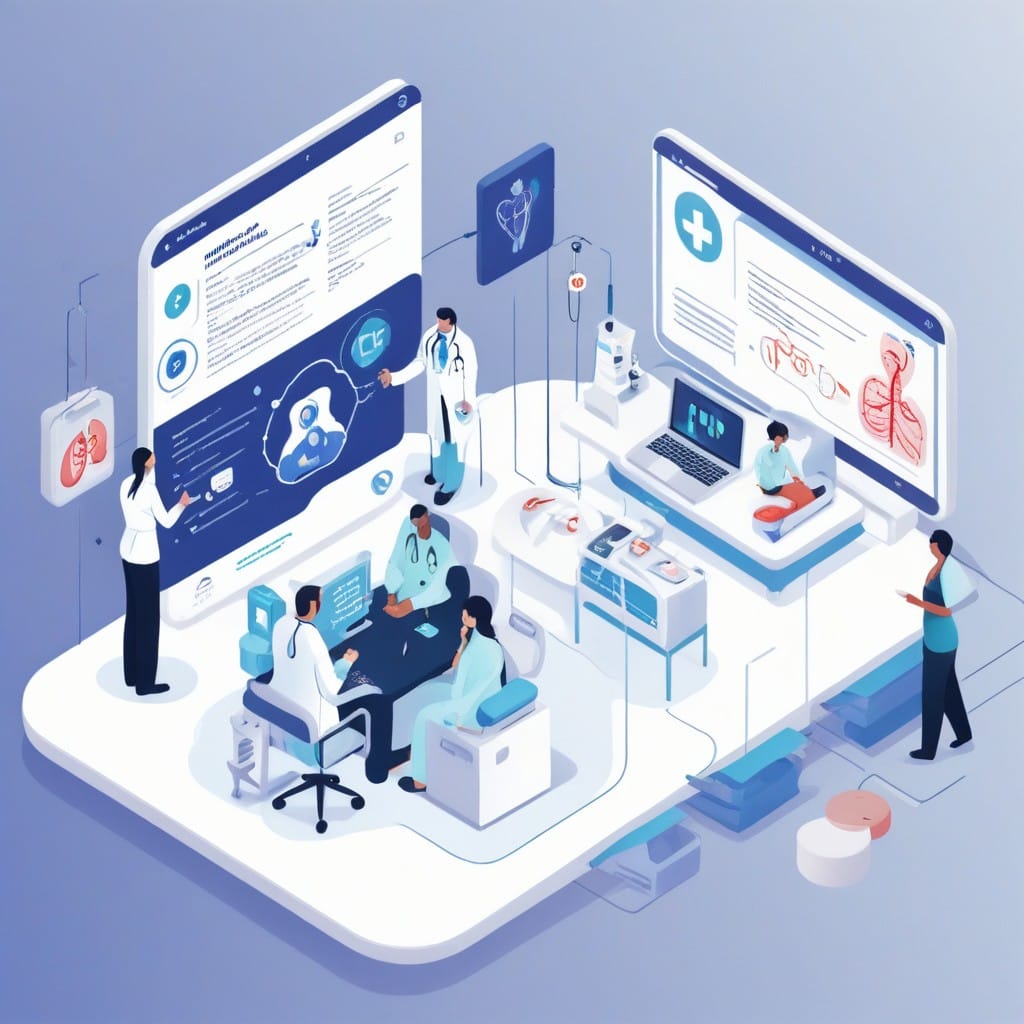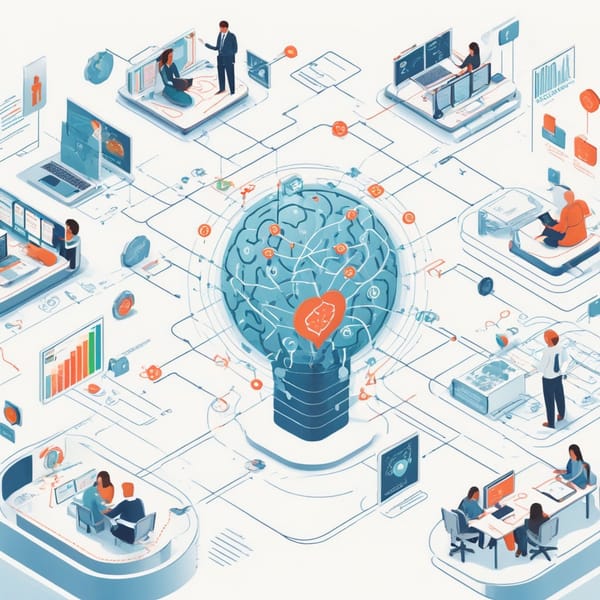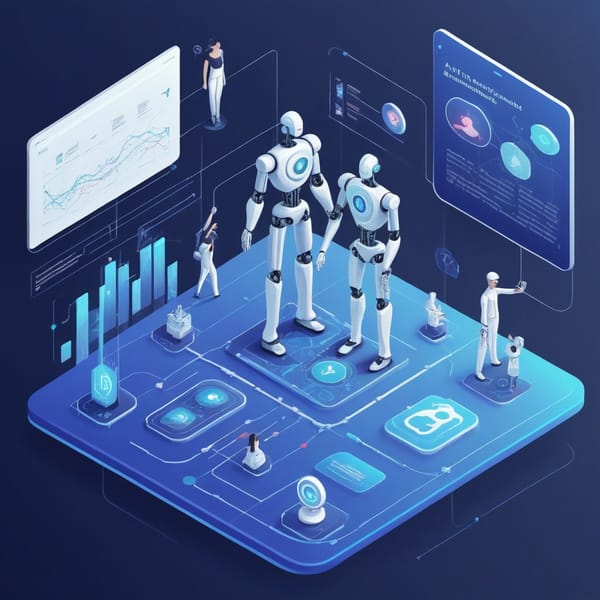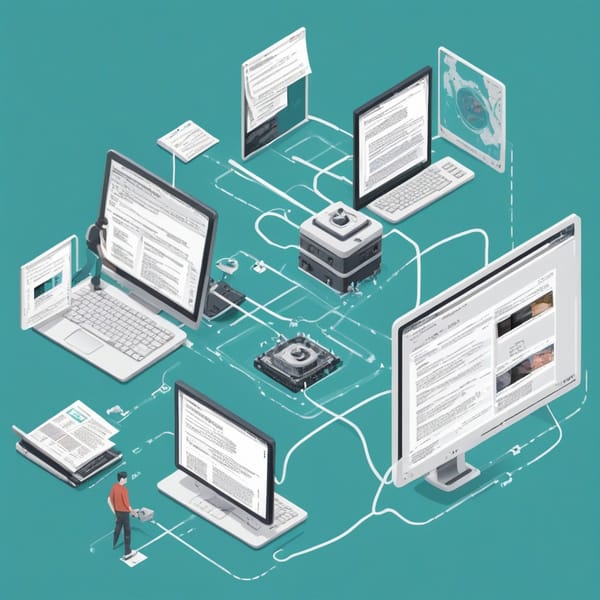AI-Powered HIPAA-Compliant Workflows in n8n for Healthcare: Streamlining Patient Care Safely

The healthcare industry is undergoing a digital transformation, with automation and artificial intelligence (AI) playing pivotal roles in improving efficiency, reducing errors, and enhancing patient care. However, healthcare providers must also adhere to strict regulations like the Health Insurance Portability and Accountability Act (HIPAA) to protect sensitive patient data.
n8n, a powerful workflow automation tool, offers a flexible and scalable solution for healthcare organizations looking to integrate AI while maintaining HIPAA compliance. In this post, we’ll explore how AI-powered workflows in n8n can revolutionize healthcare operations while ensuring data security and regulatory compliance.
Why HIPAA Compliance Matters in Healthcare Automation
HIPAA sets the standard for protecting sensitive patient data, requiring healthcare organizations to implement safeguards for electronic protected health information (ePHI). Any automation or AI tool handling ePHI must ensure:
- Data Encryption: Secure transmission and storage of patient data.
- Access Controls: Restrict data access to authorized personnel only.
- Audit Logs: Track all interactions with ePHI for accountability.
- Business Associate Agreements (BAAs): Ensure third-party vendors comply with HIPAA.
Failure to meet these requirements can result in hefty fines and reputational damage.
How n8n Enables HIPAA-Compliant Workflows
n8n is an open-source workflow automation platform that allows users to connect apps, APIs, and services without writing code. Its self-hosted option is particularly valuable for healthcare organizations, as it enables full control over data storage and processing—key for HIPAA compliance.
Key Features for Healthcare Workflows:
- Self-Hosting Capabilities
- Host n8n on private servers or HIPAA-compliant cloud providers (e.g., AWS, Google Cloud with BAA).
-
Ensures data never leaves a secure environment.
-
End-to-End Encryption
-
Encrypt data in transit and at rest using industry-standard protocols (TLS, AES-256).
-
Granular Access Controls
-
Define user roles and permissions to restrict ePHI access.
-
Audit Trails
- Log all workflow executions and data interactions for compliance reporting.
AI-Powered Use Cases in Healthcare
By integrating AI models (e.g., OpenAI, Hugging Face) into n8n workflows, healthcare providers can automate repetitive tasks while maintaining compliance.
1. Automated Patient Intake & Triage
- Use AI chatbots to collect patient symptoms and medical history via secure web forms.
- Route high-priority cases to clinicians while filtering non-urgent requests.
2. Smart Appointment Scheduling
- AI analyzes patient records to suggest optimal appointment times, reducing no-shows.
- Syncs with EHR systems (e.g., Epic, Cerner) via HIPAA-compliant APIs.
3. AI-Assisted Diagnostics
- Integrate AI models to analyze lab results or imaging reports, flagging anomalies for review.
- Ensure all outputs are logged and reviewed by a healthcare professional.
4. Secure Patient Communication
- Automate encrypted SMS or email reminders for medication adherence or follow-ups.
- Mask sensitive data in notifications to prevent accidental exposure.
Best Practices for HIPAA Compliance in n8n
- Host on Compliant Infrastructure
-
Use HIPAA-certified cloud providers and sign BAAs where applicable.
-
Minimize ePHI Exposure
-
Only include necessary patient data in workflows; anonymize where possible.
-
Regular Security Audits
-
Conduct penetration testing and review access logs to detect vulnerabilities.
-
Train Staff on Compliance
- Ensure teams understand HIPAA requirements when designing or executing workflows.
Conclusion
AI-powered workflows in n8n offer healthcare organizations a secure, efficient way to automate processes while adhering to HIPAA regulations. By leveraging self-hosting, encryption, and AI integrations, providers can enhance patient care without compromising data security.
As healthcare continues to embrace digital innovation, tools like n8n will be essential in bridging the gap between automation and compliance. Start by piloting small, low-risk workflows and gradually expand as confidence in the system grows.
Interested in implementing HIPAA-compliant automation? Explore n8n’s documentation and consult with a compliance expert to tailor workflows to your organization’s needs.



